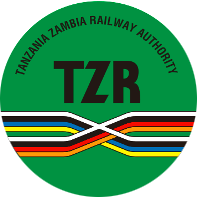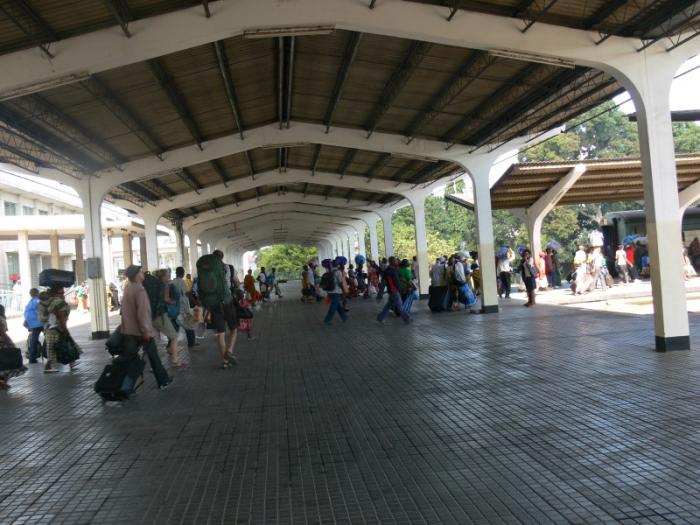The general conditions of carriage are provided for under Part VII, Sections 24 – 37 of the TAZARA Act, as tabulated hereunder.
Conditions for carriage of passengers and luggage
The Authority may, subject to the provisions of this Act:-
Determine the conditions upon which passengers and luggage shall be carried by the Authority and different conditions may be determined in different cases; and such conditions shall be published in the Tariff Book;
Determine the fares and other charges for the carriage of passengers’ and luggage by the Authority; and such fares and other charges shall be notified to the public, Provided that provision shall be made for the carriage of a specified amount of baggage by a passenger free of charge and different amounts may be determined for passengers travelling by different classes; and
Determine the different classes of accommodation available to passengers on trains of the Authority.
General right of persons to be carried as passengers
Subject to the other provisions of this Act, any person who has tendered to an authorised employee the proper fare for the ticket he desires shall be entitled to obtain such ticket and to be carried as a passenger by the Authority in accordance with the conditions subject to which such ticket is issued.
General conditions for issue of tickets
Every ticket and free pass shall be issued by the Authority subject to the other provisions of this Act and to the conditions specified in the Tariff Book.
Travelling without valid ticket
Notwithstanding section 28, no person shall travel on any train of the Authority without the permission of the Authority, and any person found on such train without such permission may, without prejudice to any other action which may be taken against him, be required by any authorised employee to leave the train and, if he does not do so, may be removed there from.
Fares payable by person travelling without valid ticket, etc.
Any person who travels on any train of the Authority without a valid ticket or free pass; OR being in, or having come from, any such, train does not deliver up his ticket or free pass in accordance with the conditions on which the ticket or free pass is issued, shall be liable to pay, on demand by an authorised employee, the fare for the distance he has travelled or proposes to travel and, in addition, such excess charges as may be specified in the Tariff Book; and for the purpose of ascertaining such fare it shall be presumed that such person has travelled from the station:
from which the train originally started; or
if the tickets or free passes of passengers have been examined during the journey, from the place where they were last examined and found to be in order; unless he satisfied such authorised employee to the contrary.
Any person who travels in a class of a train higher than that for which he is in possession of a valid ticket or free pass OR travels on a train beyond the place authorised by his ticket or free pass, shall be liable to pay, on demand by an authorised employee, a fare equal to the difference between the fare he has paid and that which he should have paid and, in addition, such excess charges as may be specified in the Tariff Book.
If, on demand by an authorised employee, any person refuses to pay the fare and excess charge for which he is liable under this section, any authorised employee or any police officer may arrest and detain that person, without warrant, and bring him, as soon as practicable, before a court having jurisdiction to deal with him in accordance with this Act.
Fares payable by person travelling without valid ticket, etc.
The Authority may, subject to the other provisions of this Act:
Determine the conditions upon which goods shall be carried or warehoused by the Authority and different conditions may be determined in different cases and such conditions shall be published in the Tariff Book; and
Determine the rates and other charges for the carriage or warehousing of goods and for any other service or facility provided by the Authority; and such rates and other charges shall be published in the Tariff Book.
General right to have goods carried
Subject to the other provisions of this Act, any person who has tendered to an authorised employee the appropriate rates and other charges and hascomplied with the conditions upon which goods may be accepted for carriage by the Authority, shall be entitled to obtain a receipt for such goods and have such goods carried by the Authority in accordance with the conditions of carriage:
Provided that if, in the opinion of an authorised employee:
Any animal tendered for carriage is wild, dangerous or appears to be suffering from infectious or contagious disease;
any goods tendered for carriage are goods to which section 35 applies;
any goods tendered for carriage exceed the maximum weight or dimension specified in the Tariff Book;
any goods tendered for carriage are improperly or insufficiently packed;
the carriage of any goods would at any stage of the transit thereof be contrary to any law; or
facilities for dealing with the goods tendered for carriage are not available at the place where such goods are tendered or at the place of destination or at any place en-route, the person tendering such goods for carriage shall not be entitled to have goods carried by the authority unless such goods are accepted for carriage in accordance with any special provisions dealing with the carriage of such goods.
Description of goods to be delivered
The consignor of, or person tendering any goods to the authority for carriage or warehousing, and on request by an authorised employee, the consignee of, or person receiving, any goods which have been carried or warehoused by the Authority, shall deliver to an authorised employee an account in writing signed by such consignor, person or consignee, as the case may be, containing such a description of the goods as may be sufficient to enable such employee to determine the value of those goods and the rates and charges payable for carriage or warehousing by the Authority.
Any authorised employee shall, for the purpose of checking any account delivered under subsection (1), require such consignor, person or consignee, as the case may be, to permit the authorised employee to examine such goods, and shall, in order to ascertain the value of those goods, examine or cause such goods to be examined.
If such consignor, person or consignee fails to deliver the account referred to in subsection (1) or to permit such goods to be examined as required under subsection (2), an authorised employee may:
in respect of goods which are tendered to the Authority for carriage or warehousing, refuse to accept the goods for carriage or warehousing unless a rate or charge not exceeding the highest rate or charge payable for that class of goods is paid; or
in respect of goods which have been carried by the Authority, refuse to deliver such goods unless a rate or charge not exceeding such highest rate or charge as is referred to in paragraph (a) is paid.
If, in respect of goods which have been carried or warehoused by the Authority, an account delivered under subsection (1) if found to be false in any material particular with respect to the description of any goods to which it purports to relate, an authorised employee may refuse to deliver such goods unless, in respect of the carriage or warehousing of the goods, a rate or charge not exceeding double the highest rate or charge payable for that class of goods is paid.
Goods to be sold to pay charges, rates
Where any person fails to pay, on demand made by authorised employee, any rate or charge due from him in respect of any goods, the Authority may detain the whole or any part of such goods or if the value of the goods is, in the opinion of the authorised employee, insufficient to pay for such rate or charge due or if such goods have been removed from the possession of the Authority, may detain any other goods of such person which may be in, or may thereafter come into, the possession of the Authority.
Where any goods have been detained under subsection (1), the Authority may, if the rate or charge due is not sooner paid, sell by public auction such quantity of the goods to recover the rate or charge so owing as well as the expenses of such detention and sale and in the case of:
perishable goods, such auction may take place at once;
any other goods, such auction may take place on the expiry of at least fifteen day’s notice, published in the Gazette and one or more local newspapers, of the intended auction; Provided that no imported goods shall be sold under this section until they have been cleared in accordance with the provisions of any customs law in force.
The Authority may, out of the proceeds of any sale effected under subsection (2), retain a sum equal to the rate or charge due as well as the expenses of the detention and sale and shall deliver the balance, if any, of such proceeds together with such of the goods, if any, as remain unsold to the person appearing to the Managing Director to be entitled thereto.
Nothing in this section shall prejudice the right of the Authority to recover any such rate or charge, or any part thereof, by any other lawful means.
Unclaimed goods in possession of Authority
Where the owner does not claim any goods in the possession of the Authority or any other person appearing to the Authority to be entitled thereto, the Authority shall, if such owner or person is known, cause a notice to be served upon him requiring him to remove the goods.
If:
the owner of any goods in the possession of the Authority is not known or no person appears to be entitled thereto;
the notice referred to in subsection (1) cannot for any reason be served; or
there has been non-compliance with the provisions of any notice served under subsection (1), the Authority may, after a period of not less than three months (except in the case of perishable goods), sell the goods and retain the proceeds of the sale thereof: Provided that no imported goods shall be sold under this section until they have been cleared in accordance with the provisions of any customs law in force.
Indemnity where goods claimed by two persons
Where:
any goods, or the proceeds of the sale of any goods, are in the possession of the Authority such goods or proceeds are claimed by two or more persons; or
any person claiming any goods in the possession of the Authority does not produce valid documents showing that he is entitled to take delivery thereof, the Authority may withhold delivery of such goods or proceeds until the person appearing to the Managing Director to be entitled thereto has given an indemnity to his satisfaction against the claim of any other person with respect to such goods or proceeds.
Dangerous or offensive goods
This section applies to goods, which by their physical nature or chemical composition are likely to cause damage to persons or property.
No person shall take with him upon any train or vehicle of the Authority or tender to the Authority for carriage or warehousing any goods to which this section applies without giving notice of the nature of such goods:
in the case of goods taken by a person, to the employee in charge of the station at which such person commences his journey; or
in the case of goods tendered to the Authority for carriage or warehousing, to the employee to whom such goods are tendered.
An authorised employee may:
refuse to permit any goods to which this section applies to be taken by any person upon any train or vehicle of the Authority;
refuse to accept such goods for carriage or warehousing or accept them only in accordance with any special provisions dealing with the carriage or warehousing of any such goods; or
require any such goods to be marked and packed in such manner as he may direct.
Nothing in this section shall:
derogate from the provisions of any written law in force relating to the possession or transportation of explosives, petroleum, firearms or ammunition;
apply to any goods carried by any member of any military force established for the defence of the Republic, or by any police officer, in the course of his duty.
Where any authorised employee has reason to believe that any goods to which this section applies are being carried or warehoused, or have been accepted for carriage or warehousing in contravention of subsection (2) or (3), he may examine such goods and if, on examination, they are found to be goods to which this section applies, he may order their removal from any train or vehicle or from premises occupied by the Authority.
Tariff Book and Timetables
The Authority shall prepare and publish in such manner as the Board may direct:
a Tariff Book containing all matters which under this Act are required to be contained therein; and
such other books, timetables and other documents as are required to be kept under this Act.
a timetable of the passenger transport services operated by the Authority.
Tariff Book and Timetables
The Authority shall determine:
the maximum load for every wagon of the Authority and no wagon shall, except with the permission of the Managing Director, be loaded in excess of such maximum load;
the maximum number of passengers that may be carried in any coach or compartment of a coach of a train of the Authority, and such maximum number shall not be exceeded except with the permission of the Managing Director.
The Managing Director shall cause the maximum load determined under subsection (1) in respect of every wagon to be marked in a conspicuous manner on each wagon or coach.
Responsibility of the Authority as Carrier and Warehouseman
The responsibilities of the Authority as Carrier and Warehouseman are provided for under Part VIII, Sections 38 – 44 of the TAZARA Act, as tabulated hereunder.
Liability for injury or loss of life to passengers
The Authority shall not be liable for the loss of life or personal injury to any passenger, except where the loss of life or personal injury is caused by the negligence of any employee of the Authority, subject to any law relating to compensation of accidents.
The Authority shall not be liable for loss of life of, or personal injury to, any passenger:
who is travelling, with or without permission, in any part of a train or vehicle other than a part normally provided for the use of passengers during travelling;
who, not being an employee on duty is travelling with or without permission over a railway in the course of construction; or
who, at the time such loss of life or injury occurred, is being carried by any transport service other than one provided by the Authority or under the control of the Authority.
For the purposes of this section it shall not be necessary for any notice to be given to such passenger of the conditions on which he travels, and it shall be immaterial whether or not such passenger is an infant.
Liability for injury or loss of life to passengers
The Authority shall not be liable for any loss arising from the delay to any passenger caused:
by the failure of any train to start on or complete any journey; or
by the late starting or late arrival of any train arising from any cause.
Liability for injury or loss of life to passengers
Subject to the other provisions of this Act except when the owner or consignor or his representative accompanies the property and retains control thereof, the Authority shall be liable for any loss, misdelivery of, or damage to goods occurring while the goods are in transit or otherwise from any cause unless the Authority proves that such loss, misdelivery or damage arose from:
an act of war or an act of an enemy of the Republic;
seizure under legal process;
an act or order of the Government;
an act or omission of the consignor, his servant or agent;
a latent or inherent wastage in or natural deterioration of the goods;
fire or explosion; or
civil war and acts beyond the control of the Authority.
Notwithstanding subsection (1), the Authority shall not be liable for loss, misdelivery or damage of goods in the following cases:
in relation to which an account false in any material particular has been given under subsection (1) of section 31 or any incorrect or insufficient address for delivery has been given;
where there has been fraud on the part of the consignor;
unless a document acknowledging receipt of such goods for carriage by the Authority has been given;
where such goods are being carried by any transport service other than one provided by the Authority;
where there is a loss of a particular market, whether held daily or at intervals;
where there is improper or insufficient packing; or
where there is a riot, civil commotion, strike, lockout, stoppage or restraint of labour from whatever cause, whether partial, or general; and
from earthquakes, floods, landslides or any other natural cause.
Liability for delay of goods
The Authority shall not be liable for any loss arising from delay to, detention of, or deviation in, the carriage of goods unless such delay, detention or deviation is caused by the negligence of any employee or agent of the Authority:
Provided that the Authority shall not be liable for any loss arising from delay to, detention of, or deviation in, the carriage of goods as follows-
where there has been fraud on the part of the consignor;
unless a document acknowledging the receipt of such goods for carriage by the Authority has been given;
where such goods are being carried by any transport service other than one provided by the Authority or under the control of the Authority;
where there is a loss of a particular market, whether held daily or at intervals;
where there is improper or insufficient packing or an incorrect address;
where there is war, civil commotion, a strike, a lockout, stoppage or restraint of labour from whatever cause, whether partial or general; or
earthquakes, floods, landslides or any other natural cause.
Limitation of liability for animals
The liability of the Authority in respect of any animal that dies or is injured while in the possession of the Authority shall not in any case exceed the appropriate amount set out in the Tariff Book, unless at the time of the acceptance of such animal by the Authority for carriage, the consignor or his agent, declared that the value of the animal exceeds such appropriate amount and paid, or agreed to pay, such additional charges as may be specified in the Tariff Book in respect of such excess value and thereupon the liability of the Authority shall not in any case exceed such declared value.
Limitation of liability for loss of specified articles
The liability of the Authority in respect of any article specified in the Second Schedule, and contained in any parcel or package, shall not exceed the declared value at the time of acceptance of such parcel by the Authority for carriage.
It shall be a condition of the carriage of any parcel or package containing any article, the value of which has been declared, that the contents of such parcel or package shall be inspected by an authorised employee at the time of such declaration.
The Council may, by recommendation of the Board, by regulation, amend the Second Schedule.
Limitation of liability for loss of goods deposited in a cloakroom
The liability of the Authority for any loss or of misdelivery of, damage to, or delay in the delivery of, any goods deposited in a cloakroom shall not in any case exceed the declared value at the time of the deposit.
For the purpose of this section, the expression “cloakroom” means any place provided by the Authority in connection with rail services provided by the Authority as a facility for the temporary deposit of goods by passengers and other persons.



